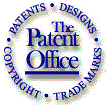Words
First!
- The
Sunrise cure is worse than the cybersquatting
disease.
- --
John Berryhill, Ph.D., J.D. (2001)
The
Intellectual Property Constituency recommends granting
all trademark owners a sunrise exclusion on domain names
when new generic top level domains are introduced. The
Sunrise+20
proposal is an infringement avoidance mechanism in the
form of a pre-emptive right to register the mark and 20
variations as domain names before registration is made
available to the general public. To put this proposal
into perspective, Sunrise+20 could potentially exclude 20
million domain names--that's seven million more domain
names than the size of the current .COM database--before
the general public and the non-commercial community of
Internet users have the opportunity to register a single
domain name.
- A 1996
comment of Jon Postel bears repeating:
- "The
domain name system should provide for the needs of
the many rather than protecting the privileges of
the few."
Sunrise+20
is inherently inequitable, operationally impractical,
internally inconsistent, and nonconforming within the
tenets of trademark law. Any sunrise exclusion amounts
to a pre-emptive
virtual land grant
to trademark owners over all other domain name
registrants. The presumption that a sunrise exclusion
is essential to prevent cyberpiracy is baseless.
Cyberpiracy represents a small percentage of all
domain name registrations. According to Network
Solutions' January 2000 data, 78% of the domain name
registrants acquire solely one name.
The
problems some trademark owners face by true
misappropriation of their marks can be resolved
through the courts, not by forcing a square peg into a
round hole. Mere registration of a name does not
provide evidence of cyberpiracy or bad faith. Yes,
there are people who misappropriate trademarks to
trade off another's goodwill by adopting a domain name
identical to an established mark. There are also
trademark owners who feel that their registration
certificate entitles them to "rights in gross",
globally exclusive use of the mark. However, a
trademark registration is not an absolute right, and
there are often competing interests in a word or name.
Even the International Trademark Association
recognized, in its 1997 White Paper:
- "At
the threshold is the issue that the Internet was
not created solely for commercial enterprise and
that domain names should not be the exclusive
province of trademark owners."
Below
is a list common dictionary words that are also used
as trademarks. These words had widely accepted meaning
long before they took on new life as trademarks. In
most of the cases below, there are multiple trademark
registrations for the same word, even if only one is
listed here.
The
Words First Project is being launched to collect
common dictionary words that are also now registered
as trademarks. There are multple uses for each of
these words, and trademark owners have no
justification for a superior entitlement. Sunrise+20
proposal is a dog that won't hunt.
- By
Ellen Rony
June 2000
-
  
    
|

|
RECOGNIZE
THESE?
acrobat
aim
anew
apple
bell
blockbuster
borders
bounty
camel
cannon
canoe
caterpillar
chase
chevron
clover
clout
clue
contradict
courtyard
craftsman
crescent
current
crown
dawn
den
dial
dodge
dolphins
dove
esquire
evolution
excel
fantastic
fidelity
ford
framework
gateway
golf
gulf
heritage
impact
Inc.
insight
intercom
interlude
ivory
justice
life
loft
mirror
money
mouse
opium
oracle
palladium
paramount
paradigm
pear
pedigree
penguin
pert
pets
pledge
pony
priceless
prince
pseudo
quark
sand dollar
sapphire
sat
shadow
sharks
shell
signature
slim
sprint
staples
star
talk
target
thrifty
tide
time
trademark
traditions
tribune
veritas
virgin
visa
windows
word
|
computer software
toothpaste
cosmetics
computer hardware
dairy products, hand tools
video store
bookseller
paper towels
cigarette
bedding
perfume, foodstuff
heavy equipment
bank
gasoline
dairy products
laundry soap
board game
perfume
hotel
tools
jewelry
stationery
bookseller, seasonings
dishsoap
entertainment network
soap
automobile manufacturer
football team
handsoap
magazine
racing toys, software, pencils
software
foodstuffs
financial services
automobile manufacturer
computerized business services
computer retail services
automobiles, cigarettes
gasoline
furniture
magazine, deer attractant
magazine
magazine
real estate services
perfume
soap
security devices, recordings
magazine
clothing
computer hardware
magazine
power sander
perfume
computer software
watches, makeup, software
movie studio
software, amplifiers
massaging device
dog food
publishing company
hair shampoo
computer software
furniture polish
athletic apparel
car rental, financial services
athletic gear
computer services
software
restaurant
leather polish
Scholastic Aptitude Test
jewelry
hockey team
gasoline
perfume, accoustical panels
agricultural implements
telephone service provider
office supplies
newspaper
magazine
department store
pharmacy
laundry soap
magazine
perfume, steel cabinets
retail furniture
newspaper
software development
airline
credit card services
software interface
word processing software
TOTAL: 89
|
|



